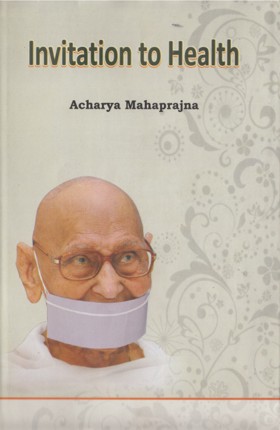A Question Still Unanswered
The dream of egalitarian society has been envisioned many a times and still it is being cherished. For its establishment provisions of equality have been put and are being put in the constitution. Even then this is a bitter truth-instead of equality there is more inequality. Caste, religious sect, language, apartheid, geographical situation, or cultural difference on the pretext of any one of these there is spread of inequality. In spite of all the dreams, efforts, and constitutional reservations the roots of inequality are going deeper and deeper. What is their reason? Are they in our outer environment? Or are they inside at the level of consciousness.
Inequality exists
We search solution of every problem in the outer environment. This has become our habit. The basic causes of inequality are present at the level of our consciousness. Some are at the level of stupor and some are at the level of beliefs. About the harijana (lower castes) the beliefs and attitudes of higher castes (savarna)in Hindu society is not of equality even today. The atmosphere of villages is poisonous even today. The villagers are unable to think of giving equal status to lower castes. There are events of atrocities taking place. Even now in many villages lower caste people hesitate to go to well for fetching water. This atmosphere of fear and terror is not an indication of freedom for them.
Equality and liberty
Bhagvan Mahāvīra was a pioneering crusader of egalitarian freedom. He did not value freedom without equality. Equality and freedom—both are united inseparably. The voice of mere freedom is meaningless voice. In spite of such a long journey of freedom the attention of people has not been concentrated on equality. There are occasional talks about economic disparity.
It is a topic of discussion but much more debatable topic is level of human equality. In earning money practical intellect has importance. On its basis, someone may get more acquisition of wealth and someone may get less. By this the dhūri (axis) of human equality will not break. It breaks when one human does not regard another human as of equal status.
Intellect and understanding are not pure
The egotism of beliefs is not new. Even if old, it is wholly undesirable. It has created cultural hindrances from time to time. Had these obstacles not been there how big India would have been? Would Greater Bharata (Brhat Bhārata) become smaller Bharata? Would Indian cultural consciousness or spirit be confined to the boundaries of narrowness? What is the use of the reminiscence of the past? The haze of the present is not being cleared. Even today intellect and understanding are not pure. Mahāvīra had said: Treat all living beings like your own self. But the tragedy is one human does not treat another human as equal. The value of this principle of equality of selves is as much social as it is religious. Where is the hindrance in the spread of this principle? Its analysis is needed. Is undeveloped social consciousness a hindrance? Or, is the conception of religion a hindrance? Or, internal stupefaction, selfishness, egotism etc. are the hindrances?
Hindrance is stupefaction
First obstacle is stupefaction of consciousness. On this our attention is being paid less. To understand this truth one story will be helpful. A father told the son—one story teller has come. He does story telling very well. Today you also accompany me. Both father and son went to hear story. The story teller gave a very touchy discourse on "All souls are equal". The son heard a discourse for the first time and his heart was stirred. Father went home to eat and son went to shop. After an hour father came to the shop. He saw that there was a heap of grains and a cow was eating the grains. He started wielding stick from a distance itself. He told the son, you are blind. You do not see that the cow is eating grains.
The son replied: Oh father! I am not blind. Today only my eyes have opened. All souls are equal; this principle has refined my vision. So, what if a cow eats some grains? The father said, you are a great fool. Should the talk at religious place be applied to shop?
This is one demonstration of stupefaction.
Confession of Engels
We are listening about equality at the level of stupefaction and practicing it at that level. Without breaking the labyrinths of stupefaction how will the talk of equality be successful? Our conduct and behaviour are reflections of our internal consciousness. If there is no equality in our consciousness, then how will our conduct be egalitarian? How can social organization be egalitarian? Our sociologists, economists, and people of politics talk very much of egalitarian society. On this much is being thought, and written. From the time of Marx till now this round is going on but there seems to be no satisfactory solution. At the far end of life Marx and Engels experienced the need for spirituality. "A few days before death Engels confessed in a letter—Marx and I are partly responsible for spreading this feeling amongst the youngsters that economic dimension is everything. Firstly, to reply to the opponents we had to emphasize this thing more than what was needed; and secondly, we had neither time nor opportunity that we could see the other side fully. (New direction P.6)
Is this question not worthy of thought for the modern thinkers?
 Acharya Mahaprajna
Acharya Mahaprajna
